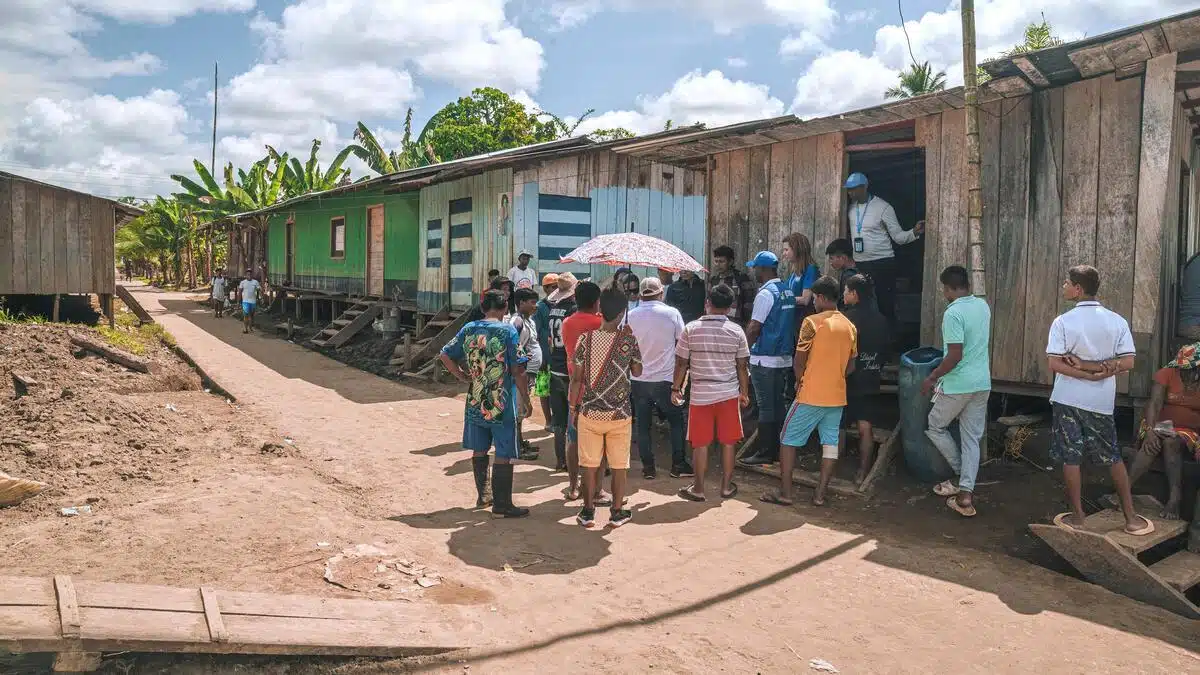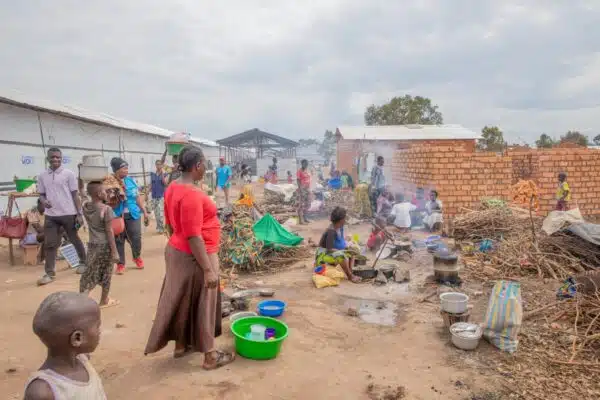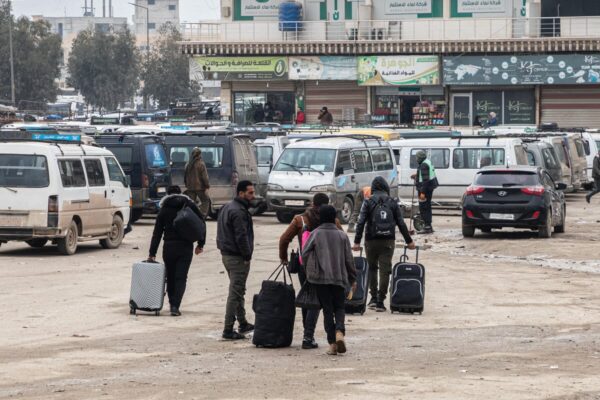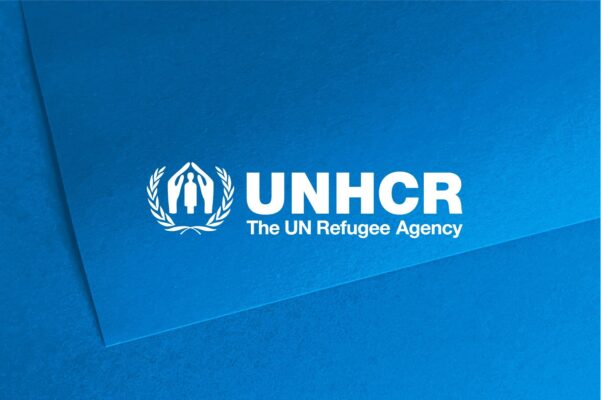
UNHCR staff provide emergency aid to internally displaced communities in Chocó, Colombia, following severe flooding and escalating violence in the region. © UNHCR/Courtesy Diego Pérez
This is a summary of what was said by UNHCR spokesperson William Spindler – to whom quoted text may be attributed – at today’s press briefing at the Palais des Nations in Geneva.
GENEVA – As violence escalates and humanitarian needs intensify across Colombia, UNHCR, the UN Refugee Agency, warns that years of progress in protecting and integrating displaced populations risk being lost, and the most vulnerable – children, women and displaced families – will pay the highest price. Refugees and internally displaced populations may be forced to move again in search of safety and stability, while returnees will not find conditions to settle again.
Colombia hosts one of the largest uprooted populations in the world, with over 7 million internally displaced people, nearly 3 million Venezuelans refugees and migrants, and more than 500,000 Colombian returnees.
For years, the country has been a pillar of regional solidarity with those fleeing violence and instability. However, as funding dries up, UNHCR is being forced to suspend essential services, threatening to undo years of progress and leaving the most vulnerable without the support they desperately need.
Key programmes that support conflict-affected communities, enable the safe return of internally displaced families, and regularize informal urban settlements are being scaled back or discontinued. These cuts undermine progress toward stability, local integration, and self-reliance for refugees and internally displaced people.
The consequences of the funding gap are being acutely felt in the conflict-ridden Catatumbo region along Colombia’s border with Venezuela. Recent clashes between non-State armed groups have forcibly displaced over 63,000 people in what is now the largest incident of mass displacement ever registered in Colombia’s history. Despite its humanitarian coordination role in the area, UNHCR has had to halt the distribution of basic relief items such as mattresses, blankets, hygiene kits, solar lamps, and mosquito nets even though violence continues.
Beyond emergency relief, long-term stabilization efforts are also faltering. UNHCR has been forced to pause its support to the government-led legalization of informal settlements an initiative that secures solutions through property rights and enables access to water, electricity, and safe housing for over 105,000 people. Without this support, many remain in precarious living conditions with no clear path to recovery.
The suspension of child protection programmes has dealt a particularly devastating blow. During 2024, 17,740 children at risk benefited from two key UNHCR projects focused on providing protective environments and case management. With the suspension of these programmes, thousands of children will be exposed to acute risk of recruitment by armed groups, exploitation, and abuse.
The documentation of over 500,000 Venezuelans is also at risk due to the lack of funding. While UNHCR has been supporting Colombia’s new regularization programmes (known as PEP Tutor, by its Spanish acronym), it will not be able to provide additional support beyond the procurement of 100,000 identity cards. Without identification, hundreds of thousands of Venezuelans will face challenges in settling down, accessing health care, education, and lawful employment, dramatically increasing their vulnerability to exploitation and abuse.
The closure of key Attention and Orientation Centres (PAO in Spanish) in high-risk zones has further cut off access to vital information and referral to basic protection and assistance services for around 100,000 people. Moreover, the funding freeze has also forced the suspension or downsizing of several other essential programmes delivered through UNHCR’s partners. These include legal aid services, support for community organizations, capacity building for national and local authorities, violence prevention for women and girls, and initiatives promoting employment and financial inclusion.
UNHCR urgently calls on the international community to step up its support and provide the necessary funding to sustain its operations in Colombia. The organization requires $118.3 million to continue its vital work this year.
The Regional Response Plan for Venezuelan Refugees and Migrants in Latin America and the Caribbean, which requires $1.4 billion in funding, is currently only 4.6% funded.
Colombia has shown remarkable generosity in hosting millions of refugees and migrants. But this must be matched by global solidarity, before more lives are pushed into deeper hardship and insecurity.
For more information, please contact:
- In Panama, Luiz Fernando Godinho, godinho@unhcr.org, +507 6356 0074
- In Geneva, William Spindler, spindler@unhcr.org, +41 79 549 5998
Originally published by UNHCR on 25 April 2025





